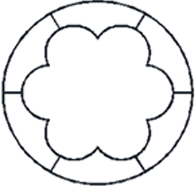tensile strength tester manufacturers exporter
Understanding Tensile Strength Tester Manufacturers and Exporters
Tensile strength testers play a critical role in material testing industries, enabling manufacturers to evaluate the tensile properties of materials, including metals, polymers, and composites. With the rising demand for high-quality materials across various sectors such as construction, automotive, aerospace, and manufacturing, the need for reliable tensile strength testing has become paramount. This article aims to explore the landscape of tensile strength tester manufacturers and exporters, emphasizing their importance and the factors influencing their selection.
The Role of Tensile Strength Testers
Tensile strength testers measure the force required to stretch a material until it breaks. They provide key parameters such as ultimate tensile strength, yield strength, elongation, and reduction in area. These measurements are crucial for quality control, research and development, and ensuring compliance with industry standards.
With global markets becoming more interconnected, the demand for accurate and efficient tensile testing solutions has grown significantly. As a result, manufacturers are focusing on developing advanced testing equipment that integrates new technologies, such as automation, data acquisition systems, and user-friendly interfaces.
Key Features of Quality Tensile Strength Testers
When evaluating tensile strength testers, several key features should be considered
1. Precision and Accuracy The reliability of test results is paramount. Quality testers are designed to provide precise measurements with minimal discrepancies.
2. Load Capacity Different materials require testers that can handle a range of loads. High-capacity models are essential for testing heavy-duty materials, while lower-capacity testers may suffice for lighter applications.
3. Testing Speed The ability to adjust the speed of the test can influence the results. High-quality testers offer variable speed settings to tailor the testing process to specific material requirements.
4. User Interface A user-friendly interface can significantly reduce the learning curve and enhance productivity. Modern testers often include touchscreen controls, making it easier for operators to manage tests.
5. Data Analysis Capabilities Advanced systems often come with integrated software for data analysis and reporting. This feature simplifies the process of interpreting results and aids in maintaining comprehensive records.
tensile strength tester manufacturers exporter

Selecting a Manufacturer or Exporter
When choosing a manufacturer or exporter of tensile strength testers, consider the following factors
1. Reputation Research the manufacturer's reputation in the industry. Established companies with a strong track record are often more reliable and trustworthy.
2. Compliance with Standards Ensure that the testers comply with international testing standards such as ISO, ASTM, or JIS. This compliance ensures that the equipment meets industry quality benchmarks.
3. After-Sales Support A reliable after-sales service is crucial for maintenance and troubleshooting. Companies that provide comprehensive support services can help ensure that your equipment remains in optimal condition.
4. Technology and Innovation Manufacturers that invest in R&D are more likely to offer cutting-edge testing solutions that incorporate the latest technological advancements.
5. Customization Options Different industries may have unique testing requirements. Choose manufacturers that offer customizable solutions to meet specific needs.
Global Market Trends
The global market for tensile strength testers is expanding as emerging economies ramp up their manufacturing capabilities. Countries such as China, India, and Brazil are expected to drive growth due to increased industrialization and infrastructure development. As these markets grow, the need for advanced testing equipment will rise, creating opportunities for both domestic and international exporters.
Additionally, environmental considerations are becoming paramount. Manufacturers are increasingly focusing on developing eco-friendly testing solutions that minimize waste and energy consumption, appealing to environmentally conscious consumers and companies.
Conclusion
In conclusion, tensile strength testers are vital tools in the material testing landscape, and the manufacturers and exporters behind them play a crucial role in ensuring quality and compliance across various industries. By understanding the key features of these testers, as well as the criteria for selecting reputable manufacturers, companies can enhance their material testing capabilities, ensuring their products meet the highest standards of quality and performance. As global markets continue to evolve, the importance of reliable tensile strength testing equipment will undoubtedly remain a priority for manufacturers worldwide.
-
The Role of Tensile Force Testers in Quality Control and Material Science
NewsAug.01,2025
-
Maintenance and Safety Tips for Aging Ovens
NewsAug.01,2025
-
Density Balance in Forensic Science
NewsAug.01,2025
-
Advanced Optical Measurement Technologies
NewsAug.01,2025
-
A Buyer’s Guide to Tensile Test Machines
NewsAug.01,2025
-
Why the Conductor Resistance Constant Temperature Measurement Machine Redefines Precision
NewsJun.20,2025
 Copyright © 2025 Hebei Fangyuan Instrument & Equipment Co.,Ltd. All Rights Reserved. Sitemap | Privacy Policy
Copyright © 2025 Hebei Fangyuan Instrument & Equipment Co.,Ltd. All Rights Reserved. Sitemap | Privacy Policy

